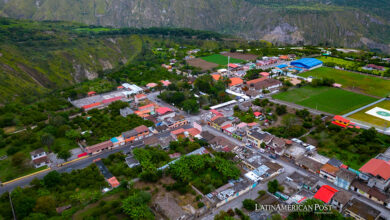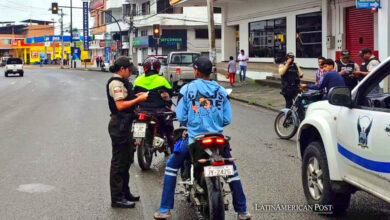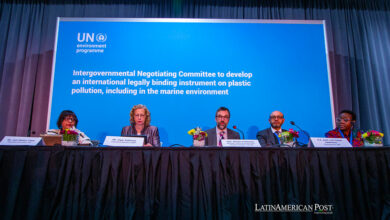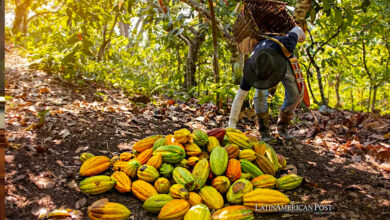Ecuador Captures Key Colombian Rebel Leader, Plans Extradition
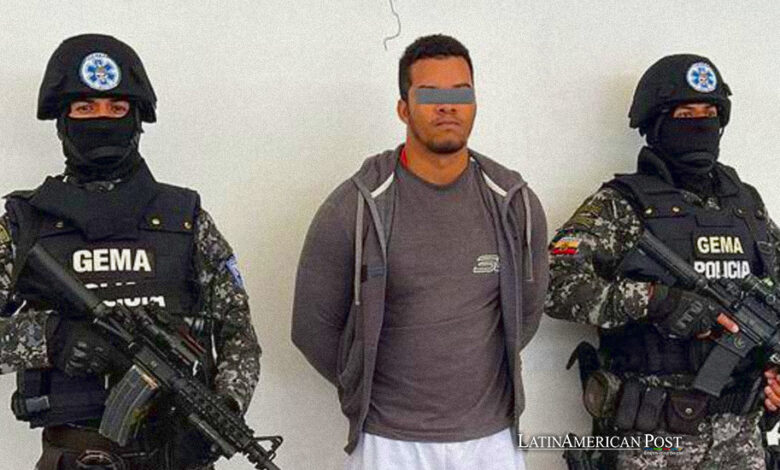
In a significant crackdown on cross-border crime, Ecuador’s police have arrested Carlos L, leader of the Oliver Sinisterra, a Colombian armed faction, planning to extradite him to Colombia.
Ecuador’s Bold Move Against Transnational Crime
In an unprecedented operation against transnational crime, Ecuador’s law enforcement agencies have captured Carlos L, alias El Gringo, the notorious leader of the Oliver Sinisterra, a Colombian armed group. This breakthrough is a part of Ecuador’s intensified military offensive to dismantle criminal gangs wreaking havoc in the region.
Responding to the escalating violence, President Daniel Noboa declared a state of emergency in early January, including a 60-day nighttime curfew. This drastic measure underscores the government’s resolve in combating the surge of violence attributed to 22 criminal groups now designated as terrorist organizations.
El Gringo’s capture in Imbabura, northern Ecuador, marks the culmination of a three-month meticulous operation by the security forces. The arrest’s significance is amplified by Oliver Sinisterra’s affiliation with the Segunda Marquetalia, a faction of the Revolutionary Forces of Colombia (FARC) dissidents, which rejected the 2016 peace agreement with the Colombian government.
Oliver Sinisterra’s Activities in Colombia and Ecuador
The Oliver Sinisterra front is known for its operations in Colombia’s Narino province and Ecuador’s Esmeraldas province. This group’s activities have been a source of concern for both Ecuador and Colombia due to their involvement in various criminal activities, including ties with terrorist groups, particularly in the border town of San Lorenzo.
Ecuador police commander Cesar Zapata highlighted the gravity of Carlos L’s criminal activities and his significant criminal record. An immigration hearing is scheduled, following which he will be expelled from Ecuador and handed over to Colombian authorities. Zapata has already coordinated with Colombian police for this extradition, marking a crucial step in bilateral cooperation against organized crime.
This development comes at a critical juncture for Ecuador. The government’s decision to label these groups as terrorist organizations is not merely a legal classification but a broader strategy to restore law and order. The state of emergency and curfew are part of a comprehensive approach to curb the influence of criminal gangs that have been causing widespread violence and instability.
The Fight Against Armed Groups
The cross-border nature of Oliver Sinisterra’s activities underscores the challenges faced by Ecuador and Colombia in their fight against armed groups. These groups often exploit porous borders to conduct illegal activities, including drug trafficking, arms smuggling, and other forms of organized crime. The capture of El Gringo is a testament to the growing effectiveness of Ecuador’s security forces and their ability to coordinate with neighboring countries in tackling such sophisticated criminal networks.
The extradition of Carlos L. to Colombia is expected to have significant repercussions on the dynamics of organized crime in the region. It sends a strong message to other criminal factions about the increasing risks of operating within and across Ecuador. Moreover, it demonstrates Ecuador’s commitment to upholding regional security and stability, aligning with international efforts to combat terrorism and transnational crime.
Ecuador’s Shift in Security Approach
This event also marks a pivotal moment in Ecuador’s history, reflecting a shift in its approach to dealing with internal and cross-border security threats. By taking decisive action against leaders of criminal groups and enforcing stringent measures like the state of emergency, Ecuador is setting a precedent in the region for a more aggressive stance against organized crime.
Also read: Two Detained in Ecuador Following Gang-Related Prosecutor Murder – Police Report
The arrest of Carlos L and the planned extradition to Colombia is a significant victory for Ecuador in its ongoing battle against criminal gangs and terrorist organizations. It highlights the country’s resilience and determination in restoring peace and stability, showcasing a proactive stance in regional security cooperation. As the situation unfolds, it will be crucial to monitor the impact of this high-profile capture on the broader landscape of organized crime in South America.

